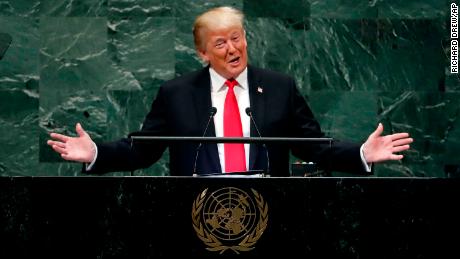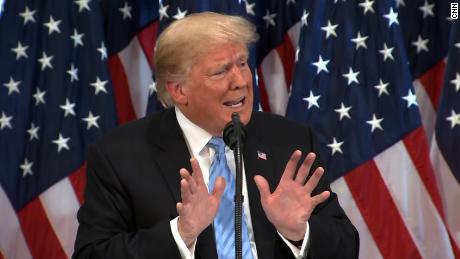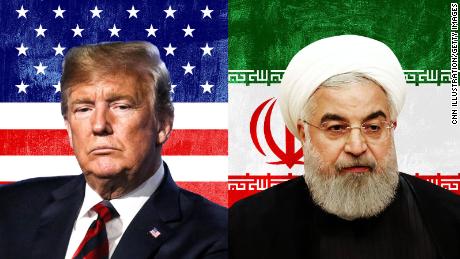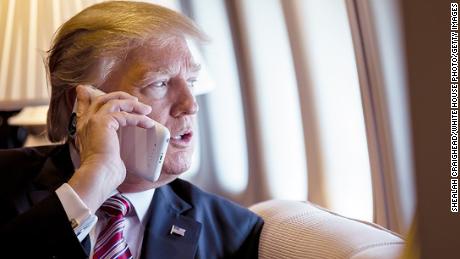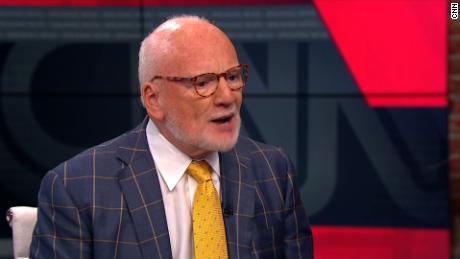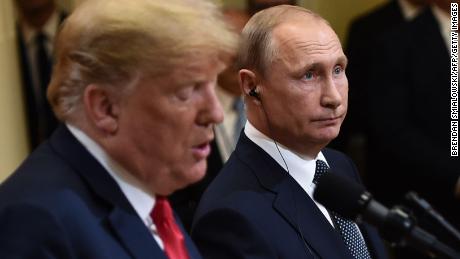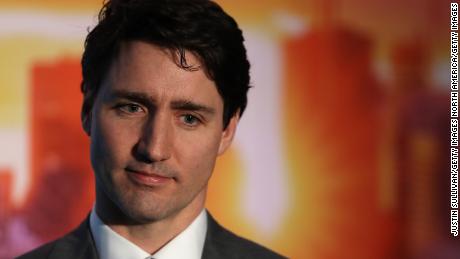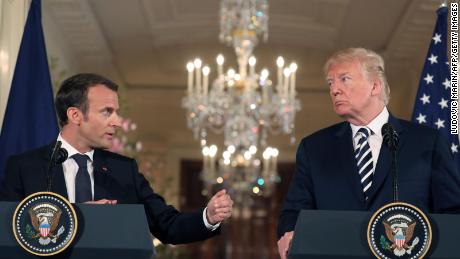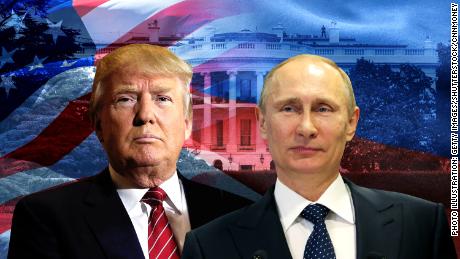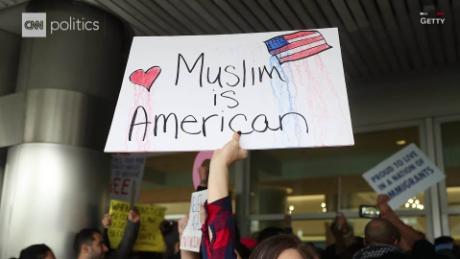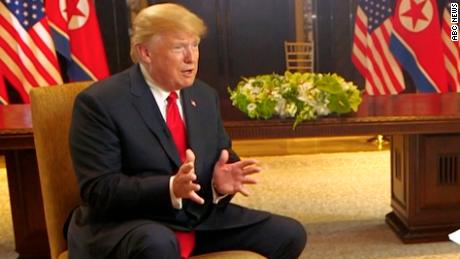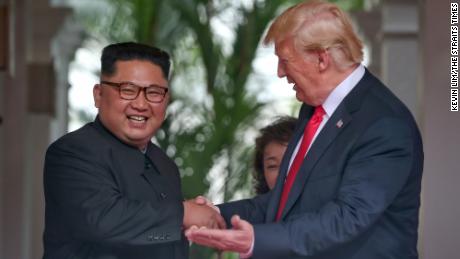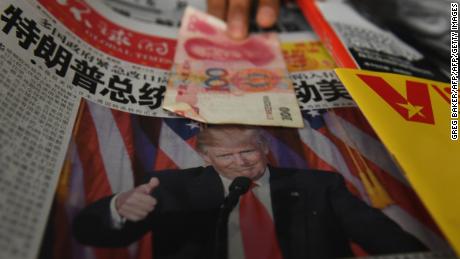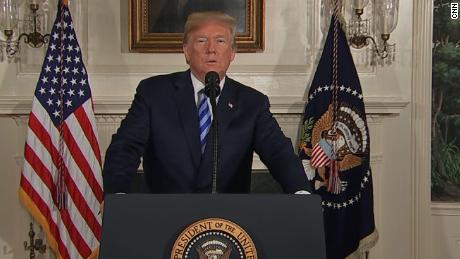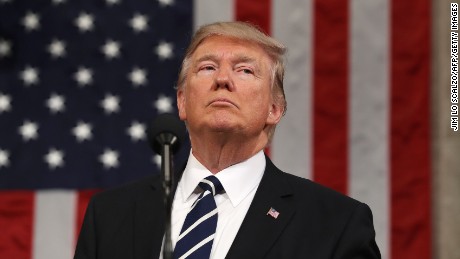Story highlights
- Trump will limit some of the changes Obama made on US-Cuba policy
- The President is following efforts by a former GOP primary rival, Sen. Marco Rubio
Washington (CNN)President Donald Trump will travel Friday to a predominantly Cuban neighborhood of Miami to announce his plan to cool the warming relations between the United States and Cuba, chipping away at yet another key aspect of former President Barack Obama's legacy.
Trump will propose strictly enforcing the authorized exemptions that allow travel between the United States and Cuba and prohibiting commerce with Cuban businesses owned by the military and intelligence services, according to documents provided to CNN.
Trump will also direct Secretary of State Rex Tillerson to convene a task force on expanding Internet access on the island and reiterate the United States' opposition to efforts in the United Nations to lift the Cuban embargo until more is done to honor human rights.
The departure is the latest example of Trump taking action to undercut his predecessor's legacy.
Earlier this month, Trump announced he was leaving the Paris climate accord, a deal Obama worked to strike in his second term. And Trump has made repealing Obamacare, the former president's sweeping health care law, a top priority.
Trump has been personally invested in this process, multiple aides said, adding that the President deeply believes that the changes Obama announced in 2014 were a "bad deal for the United States and a bad deal for the Cuban people."
"It has not led to greater freedom in Cuba," one official said. "I don't think you would see him go back to the embargo wholesale, look for ways to leverage America's influence over Cuba in a way that will encourage greater freedom for the Cuban people and economic interaction."
Tillerson said the shift in relations comes, in part, because "Cuba has failed to improve its human rights record."
"What we have to achieve in approaching Cuba is if we're going to sustain the sunny side of the relationship, Cuba must, absolutely must, begin to address its human rights challenges," Tillerson said Tuesday.
The actions, however, are far from a full rollback of the policies Obama champion in the latter half of his administration.
Embassies in Washington and in Havana will remain open, sources tell CNN, and Cuban American travel and remittances remain unaffected. Republicans close to the plan do think some in the anti-Castro Cuban American community may be disappointed that the policy doesn't go far enough.
"The policy isn't going to do anything new," a source from the office of one Cuban American lawmaker complained. "It's pretty weak."
What Trump will be changing
Top Trump aides and national security officials have been meeting for weeks about Cuba, officials said, looking to nail down how far the Republican President wanted to go in hardening relations with the communist nation. While fact sheets and details have been released to different lawmakers and interest groups, an administration official said Thursday that they are still finalizing the policy.
Trump, according to officials, decry the Castro regime for human rights abuses against peaceful activists and protesters and is expected to demand the extradition of Assata Shakur, a former member of the Black Panther Party who was convicted of murdering a New Jersey state trooper.
"Our policy is to focus effort on assisting the Cuban people, not enriching the Cuban military," one top adviser said, an implicit charge that the Obama administration did just that. "Why are we committing commerce that benefits the Cuban military and intelligence services. Why aren't we focusing on what benefits the Cuban people?"
The Trump administration is particularly expected to single out GAESA, the Cuban military's business wing. The company is run by Gen. Luis Alberto Rodr├Łguez L├│pez-Callejas, Cuban President Raul Castro's son-in-law.
And on non-Cuban American travel, a change would make Americans who travel under the Obama administration categories of permitted travel subject to a Treasury Deptartment audit. This could have a cooling effect on travel as it adds a potential layer of inconvenience to travelers.
Obama, after years of clandestine work with the Castro regime, announced in 2014 that the United States would re-establish diplomatic relations and reopen the American embassy in Havana, which was closed in 1961 following the Cuban revolution. The announcement led Obama to visit Cuba in 2016, making him the first sitting president to visit the island in more than 50 years.
Obama's actions allowed for more Americans to travel to Cuba, leading US air carriers to market commercial flights direct to Cuba and cruise ships to port in the nation. The thaw also allowed Americans to bring more goods back from the island nation.
And Trump's decision to roll back some of those efforts has angered former Obama aides, including Ben Rhodes, who led the effort to ease tensions with the Castro regime.
"Trump doesn't care about human rights anywhere. Cites HR concerns in Cuba and leading HR group opposes him acting," Rhodes tweeted on Tuesday, noting that the group Human Rights Watch said reversing Obama's actions "will not improve respect for human rights on the island."
"(Cuba) represses dissent and discourages public criticism," Human Rights Watch wrote in a blog post. "But restoring restrictions on travel and commerce are unlikely to lead to improvement."
Rubio impact
Just as some Democrats are maligning Trump's actions, many Republicans who decried Obama's decisions, including Florida Sen. Marco Rubio, are supporting the President.
Rubio has, for years, led the charge for toughening relations with Cuba. The son of Cuban parents, Rubio has worked closely with Trump to push tightening relations, including multiple meetings, phone calls and at least one dinner, according to officials.
After Trump had dinner with Rubio in February, the President heralded the senator's views on Cuban relations.
"We had dinner with Sen. Rubio and his wife, who was, by the way, lovely, and we had a very good discussion about Cuba because we have very similar views on Cuba," Trump said, adding that "Cuban people" were "very good" to him in the 2016 election.
Rubio's embrace of Trump on Cuba is a slight break for the Florida senator, who has been a harsh critic of Trump's views policy toward hotbed areas like Asia, the Middle East and Russia, and has faulted Trump's comments about the North Atlantic Treaty Organization.
"Economic practices that benefit the Cuban military at the expense of the Cuban people will soon be coming to an end," Rubio tweeted on Thursday.
The Florida senator, who will attend Friday's speech, has been focused on curbing the impact of tourism on Cuba's military since he introduced a bill to do just that in 2015. Rubio noted Thursday that the Cuban military's tourism arm brags about doing business with half of all visitors to the island.
A Rubio adviser said Thursday that the senator's efforts are an attempt to "lay the groundwork" for good relations between the next generation of leaders in Cuba.
Rubio, the adviser said, "is mindful of the long term. Raul Castro and his closest advisers are mostly in their 80s. Cuba will soon have a new generation of leaders, one way or another. These policy measures are designed to lay the groundwork for that transition and empower the Cuban people to develop greater economic and political liberty."
Trump said throughout the 2016 campaign that he was willing to rollback diplomatic relations with the communist regime in Cuba. Especially in Southern Florida, where Cubans make up a key voting bloc for Republicans, Trump railed on Obama for building relations with the Castros.
"We will cancel Obama's one-sided Cuban deal," Trump said days before the election in Miami, "if we do not get the deal we want, and the deal that people living in Cuba and here deserve."
He reiterated this point on Twitter after winning the election.
"If Cuba is unwilling to make a better deal for the Cuban people, the Cuban/American people and the U.S. as a whole, I will terminate deal," he wrote.
Trump has long hanged his understanding of the deal between the United States and Cuba on his "Cuban friends" in Florida, whom he said throughout the campaign supported him over Democrat Hillary Clinton. To a degree, he was right: Trump did beat the former secretary of state in Florida, providing the effective knock out blow to Clinton on Election Night.
Ahead of Friday's remarks, the Cuban government -- including Cuban President Raul Castro -- is signaling a willingness to negotiate with Trump.
"We know they have a different view of the world," a Cuban official told CNN. "We understand that."


